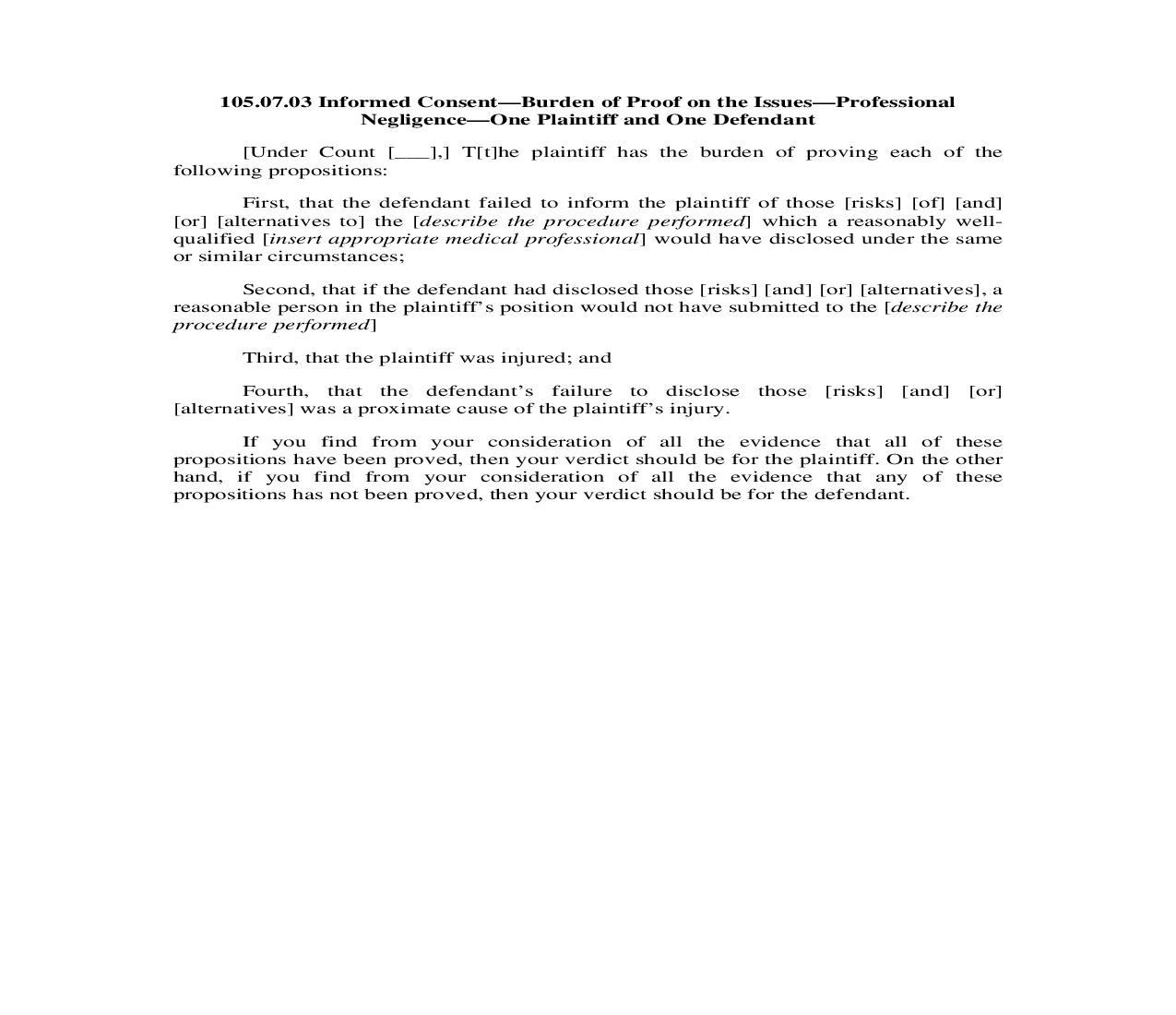
Last updated: 4/13/2015
105.07.03. Informed Consent-Burden of Proof on the Issues-Professional Negligence-One Plaintiff and One Defendant
Start Your Free Trial $ 11.99What you get:
- Instant access to fillable Microsoft Word or PDF forms.
- Minimize the risk of using outdated forms and eliminate rejected fillings.
- Largest forms database in the USA with more than 80,000 federal, state and agency forms.
- Download, edit, auto-fill multiple forms at once in MS Word using our Forms Workflow Ribbon
- Trusted by 1,000s of Attorneys and Legal Professionals
Description
105.07.03 Informed Consent--Burden of Proof on the Issues--Professional Negligence--One Plaintiff and One Defendant [Under Count [___],] T[t]he plaintiff has the burden of proving each of the following propositions: First, that the defendant failed to inform the plaintiff of those [risks] [of] [and] [or] [alternatives to] the [describe the procedure performed] which a reasonably wellqualified [insert appropriate medical professional] would have disclosed under the same or similar circumstances; Second, that if the defendant had disclosed those [risks] [and] [or] [alternatives], a reasonable person in the plaintiff's position would not have submitted to the [describe the procedure performed] Third, that the plaintiff was injured; and Fourth, that the defendant's failure to disclose those [risks] [and] [or] [alternatives] was a proximate cause of the plaintiff's injury. If you find from your consideration of all the evidence that all of these propositions have been proved, then your verdict should be for the plaintiff. On the other hand, if you find from your consideration of all the evidence that any of these propositions has not been proved, then your verdict should be for the defendant.







